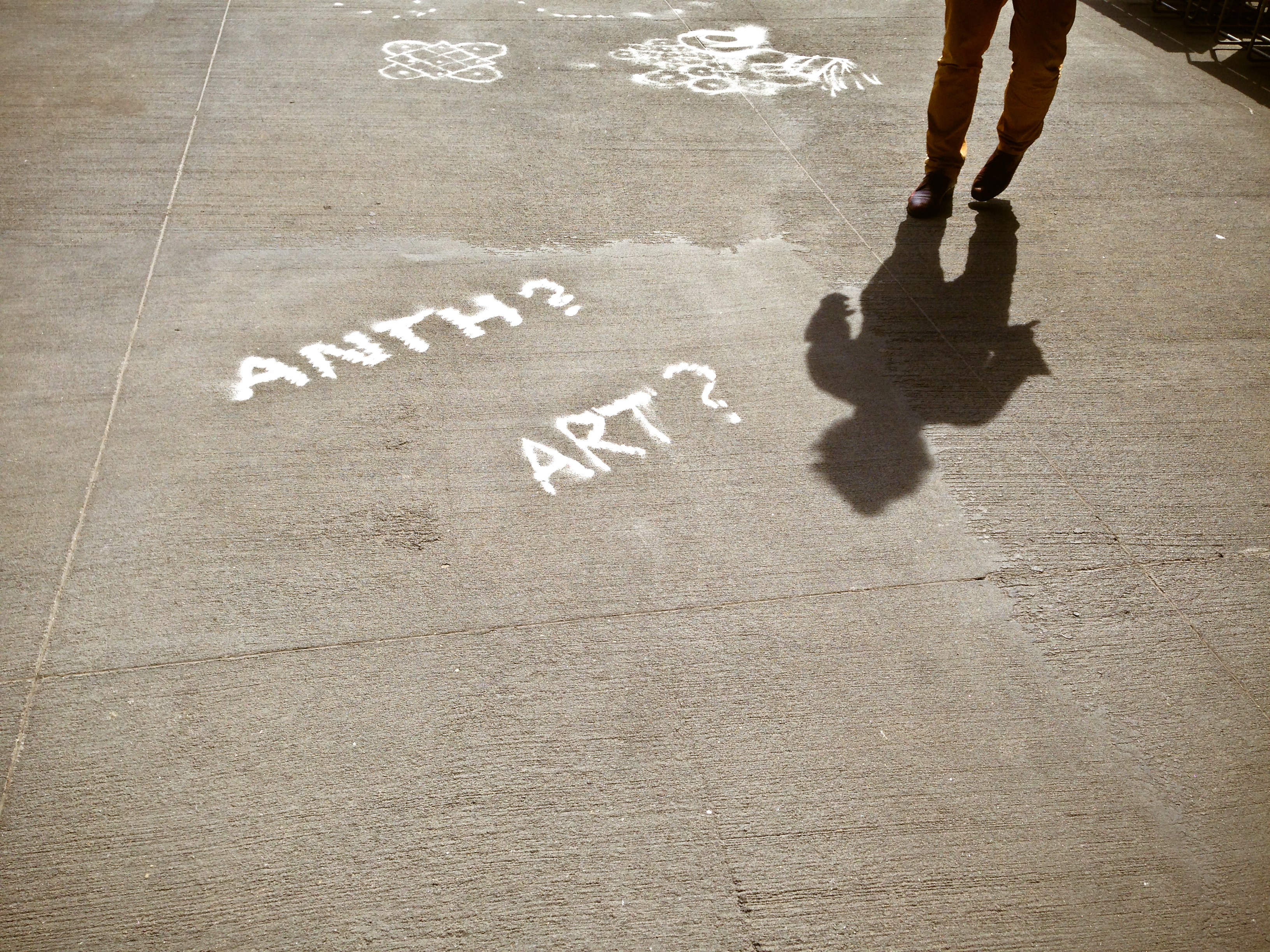
Together with Jonas Tinius, I organised a one-day workshop entitled 'Contemporary Anthropologies of Art' at Durham University’s Anthropology Department on 9th September 2015. Arnd Schneider of the University of Oslo gave the keynote speech and participants included Nayanika Mookherjee (Durham), Roger Sansi (Goldsmiths), and Rafael Schacter (UCL).
Specifically, and building on established anthropological approaches to art as those of Alfred Gell or Pierre Bourdieu, this workshop, sought to map out contemporary anthropological approaches to art. Furthermore, by asking what distinct views on artistic practices are offered by such new theoretical perspectives as ethnographic conceptualism (Ssorin-Chaikov 2013) or relational aesthetics (Sansi 2014), the workshop proposed new pathways of anthropological inquiry.
A key proposition behind this workshop is the idea that contemporary art theory and practice are increasingly in dialogue with theories of sociality – how we relate to other people to create meaning – and therefore connected to core anthropological interests. The objectives were therefore not just to apply existing anthropological theory to potentially new ethnographic situations characterized by the production of art, but to develop anthropological theory through an engagement with the conceptual approaches that underpin the contemporary production of art today.
The premise interrogated by this workshop is thus that there is something distinct about contemporary artistic practices. If this is so, what would a contemporary anthropology of art – or rather – contemporary anthropologies of art look like?
As the inaugural research event of the Anthropologies of Art [A/A] network, the workshop highlighted this digital platform as a space to map, link, and interrogate answers to these two questions. Some possible lines of thought addressed by papers were:
Specifically, and building on established anthropological approaches to art as those of Alfred Gell or Pierre Bourdieu, this workshop, sought to map out contemporary anthropological approaches to art. Furthermore, by asking what distinct views on artistic practices are offered by such new theoretical perspectives as ethnographic conceptualism (Ssorin-Chaikov 2013) or relational aesthetics (Sansi 2014), the workshop proposed new pathways of anthropological inquiry.
A key proposition behind this workshop is the idea that contemporary art theory and practice are increasingly in dialogue with theories of sociality – how we relate to other people to create meaning – and therefore connected to core anthropological interests. The objectives were therefore not just to apply existing anthropological theory to potentially new ethnographic situations characterized by the production of art, but to develop anthropological theory through an engagement with the conceptual approaches that underpin the contemporary production of art today.
The premise interrogated by this workshop is thus that there is something distinct about contemporary artistic practices. If this is so, what would a contemporary anthropology of art – or rather – contemporary anthropologies of art look like?
As the inaugural research event of the Anthropologies of Art [A/A] network, the workshop highlighted this digital platform as a space to map, link, and interrogate answers to these two questions. Some possible lines of thought addressed by papers were:
- How can we productively theorize the porous boundaries between artistic practice and every life activities?
- Has the body been overlooked as a site of artistic production? For example, can we consider the performance of gender as an aesthetics of becoming?
- What contribution can anthropology make to understandings of models of postfordist creative labour?
- What are the (dis)connections between artivism, protest, and public art?
- Can we consider the relationship between aesthetics and politics without a consideration of the state?
- How can we provide a better analysis of the porous boundaries of the art world and the market?
- What are the potentials of contemporary art for anthropological research? For example, how does the mode of artistic installation challenge and provoke alternative strategies of research?
auflynn [at] arts.ucla.edu
Alex Ungprateeb Flynn is an Associate Professor at the Department of World Arts and Cultures/Dance, University of California, Los Angeles. Working as an anthropologist and curator, Alex’s practice explores the intersection of ethnographic and curatorial modes of enquiry. Researching collaboratively with activists, curators and artists in Brazil since 2007, Alex explores the prefigurative potential of art in community contexts, prompting the theorisation of fields such as the production of knowledge, the pluriversal, and the social and aesthetic dimensions of form.